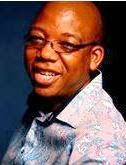Isn’t it brilliant the way newspapers,
those watchdogs of public behaviour have two kinds of morality? In their
editorial they will have us believe that they tell the truth and nothing but
the truth, whereas they often allow their advertisers to do the opposite, proving
once again that money corrupts.
Take the Johannesburg om mitted itself
to report news truthfully and accurately in
accordance with the highest standards of journalism as set out in the Press
Code of South Africa
Its Code of Conduct goes on to tell us
that if we don’t like what the paper is up to we can com plain
to the Press Ombudsman. But very
conveniently he doesn’t concern himself with dodgy ads, only editorial.
Adverts are supposed to be policed by
the Advertising Standards Authority.
But as I found out this organisation was worse than
useless when I tried to get it to do som ething
about very dicey get-rich-quick ads that were appearing in the Sunday Times.
The Citizen has been quite happy to profit fr
The ads are pock marked with names of
people calling themselves doctors when they clearly are not. Of course nobody
seems concerned that this is illegal.
Dr
Ruben prom ises With 100%
guarantee I return lost love in one hr. Social oil to get any partner you want
same day. Manhood enlargement bigger, harder and stronger in one hr. Hire
strong short boys and magic sticks to bring money
within one hr. Get any job you want and get double salary.
That’s typical of the mumbo jumbo The Citizen
is peddling in its smalls ad sections under a Herbalist heading. In the edition I saw the page of these would
have been worth roughly R40 000
to the paper at between R40 and R50 a line.
There’s Dr Mathu, Dr Love, Dr Jay and Dr Aziz all of whom no
doubt got their degrees at the world renowned University of Money Making
Magic
This section of the paper is an Aladdin’s Cave of miracles with 100% guarantees all over the place. And to make this wonderland seem more believable s
All those millionaires one reads about who
toiled for years to accumulate their wealth needn’t have bothered if only they
had read The
Citizen.
Here’s a testimony from one of Baba
Gonondo’s admirers. Two of my friends decided to visit him in Pretoria om the money they got.
Everyone I have referred to him they said they have been helped the same day. I
would like to thank Baba Gonondo for his help. If you have any problems please
don’t hesitate, just call or visit him.
Note to readers of this post: If you
want Gonondo’s contact details I’m
not passing them on for nothing. It will cost you plenty.
Short
Boys and Rats, alien spirits
that bring money, feature in quite of few of the ads.
Ads like these have no place in any
self respecting newspaper. What really should have happened is that these
advertisers should have been exposed for what they are in the editorial section
of a paper. But The
Citizen has evidently not been prepared to bite the hand that feeds
it and opposition papers have not expose this, possibly because many of them
are doing much the same thing.
 |
| STEVE MOTALE is not to blame for the adverts. They were there when he arrived at the paper |
I tossed this hot potato to The Citizen's recently appointed
Editor
He
is to be com mended for phoning me, unlike
several Editors of the Sunday Times. I never got a peep out
of them in my three year campaign to get that paper to stop running highly
suspect investment ads.
"I think you've got a point"
But when I told him that this would be an
admission that his paper believed the ads were dubious, he replied: "It's a tough one. I'm going to take it up with the advertising department."
Will money
override acceptable morality
once again?
The Citizen is a national, daily tabloid with a
circulation of around 70 000.
It was founded in 1976 by the National Party apartheid government
using money from a secret government
slush fund as it desperately needed the support of an English speaking paper. The White
Afrikaner dom inated
Nats were replaced in 1994 by a Black African National Congress government.
In 1998
the paper was bought by the CTP/Caxton
group, publisher of magazines and newspapers as well being the country’s
largest com mercial printer.
Its core readership is black middle class men many of whom evidently believe that black magic as advertised
by the this paper works.
Regards,
Jon the Poor Man’s Press Ombudsman who is not to be
confused with that far less effective Press
Ombudsman referred to in The Citizen’s Code of Conduct. He com es under the South
African Press Council set up by the media. It believes that "Effective self-regulation is the best system for promoting high standards in the media."
How can policing yourself possibly be the best way to go? And when it com es
to newspapers its other great flaw is that it has no say over the standard
of advertising that takes up a great proportion of most papers.
How can policing yourself possibly be the best way to go? And when it c






No comments:
Post a Comment